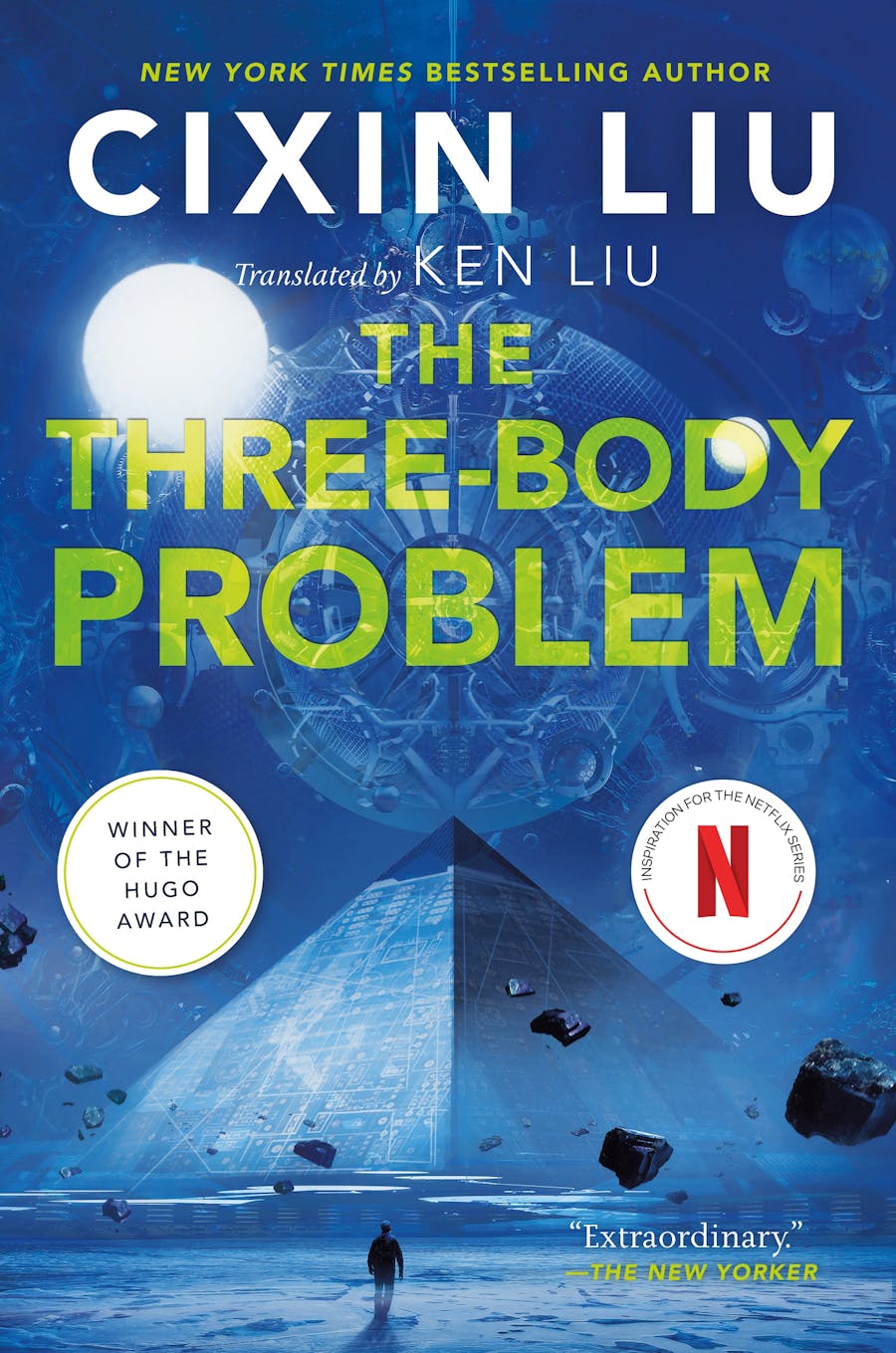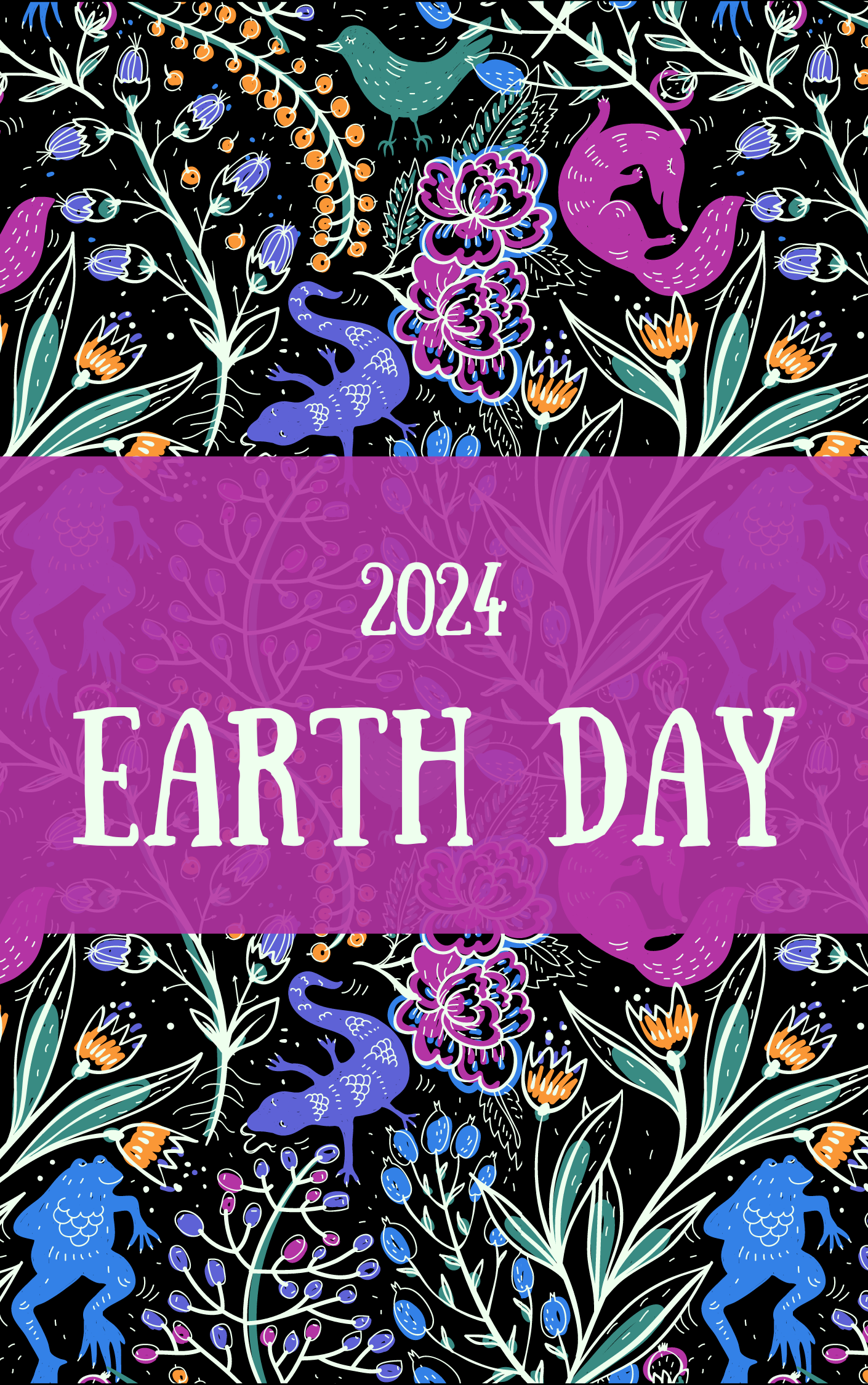Welcome to Earth Day at Dragonfly, where the Rewilding Our Stories Discord members share with you some of our highly recommended ecologically themed novels (and one TV series). We also share what we’re reading so far in our 2024 book club. We created a Discord book club channel and an environmental reading challenge at Storygraph. We celebrate our beautiful planet and reading throughout the entire year.
Who Are We?
Rewilding Our Stories is a community discussion group that explores ecological and climate topics within fiction and creative nonfiction. This field of literature is broad, diverse, and happening! Its genres are vast: fantasy, science fiction, Indigenous, futurisms, solarpunk, and more. Story themes include human connection to the wilderness, advocacy and protection of species and natural landscapes, speculation about climate change, myths, degrowth and decolonialism, and so much more. Fiction inspires our imaginations in this weird, old world. Note that some of our favorite books’ authors are also members of the Discord community, and you’ll find interviews with a lot of them at Dragonfly in the world eco-fiction spotlights! Rewilding Our Stories is also a safe place to discuss topics. We do not allow any hate or discrimination.
Earth Day Recs
The following books and films are our most recent top recommendations. Things are always changing, and it’s hard to just pick a few.
BrightFlame (she/they) is a speculative author, teacher, and solarpunk Witch and curates a list of recommended books on their site. Their most recent favorites are:
- Another Life by author-anthologist Sarena Ulibarri
- Weird Fishes by speculative fiction storyteller and cultural critic Rae Mariz. Both authors take part in the Rewilding Discord conversations.
- Sordidez by queer Boricua writer E.G. Condé is another.
BrightFlame’s notion of best overall solarpunk novels are:
- A Half-Built Garden (Ruthanna Emrys, also on our Discord)
- The Fifth Sacred Thing (Starhawk).
They also suggest all the offerings from Stelliform Press and Android Press—small, indie publishers who specialize in diverse climate and solarpunk fiction. See their full curated list: http://brightflame.com/books-i-recommend/.
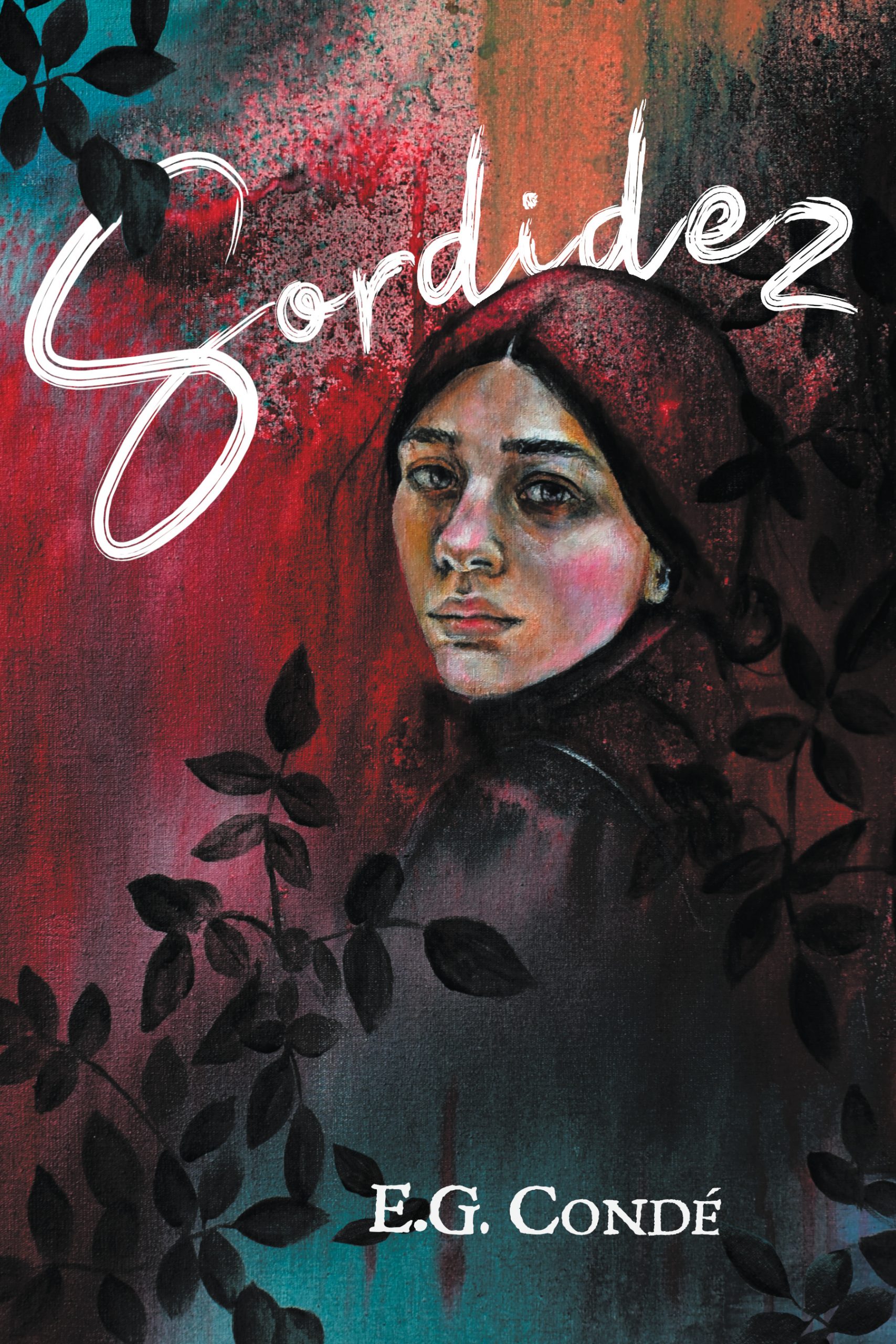
Sara Davis, creative nonfiction writer and volunteer environmental steward, recommends:
- The Light Pirate by Lily Brooks-Dalton
- Arboreality by Rebecca Campbell
“Both books envision the rocky transitional period as climate change erodes our familiar social infrastructure and new structures must emerge. They are each deeply rooted to a sense of place—hurricane-battered Florida in The Light Pirate and forested Vancouver Island in Arboreality—and dare to imagine hope and community among survivors despite the danger and challenge of the future.”
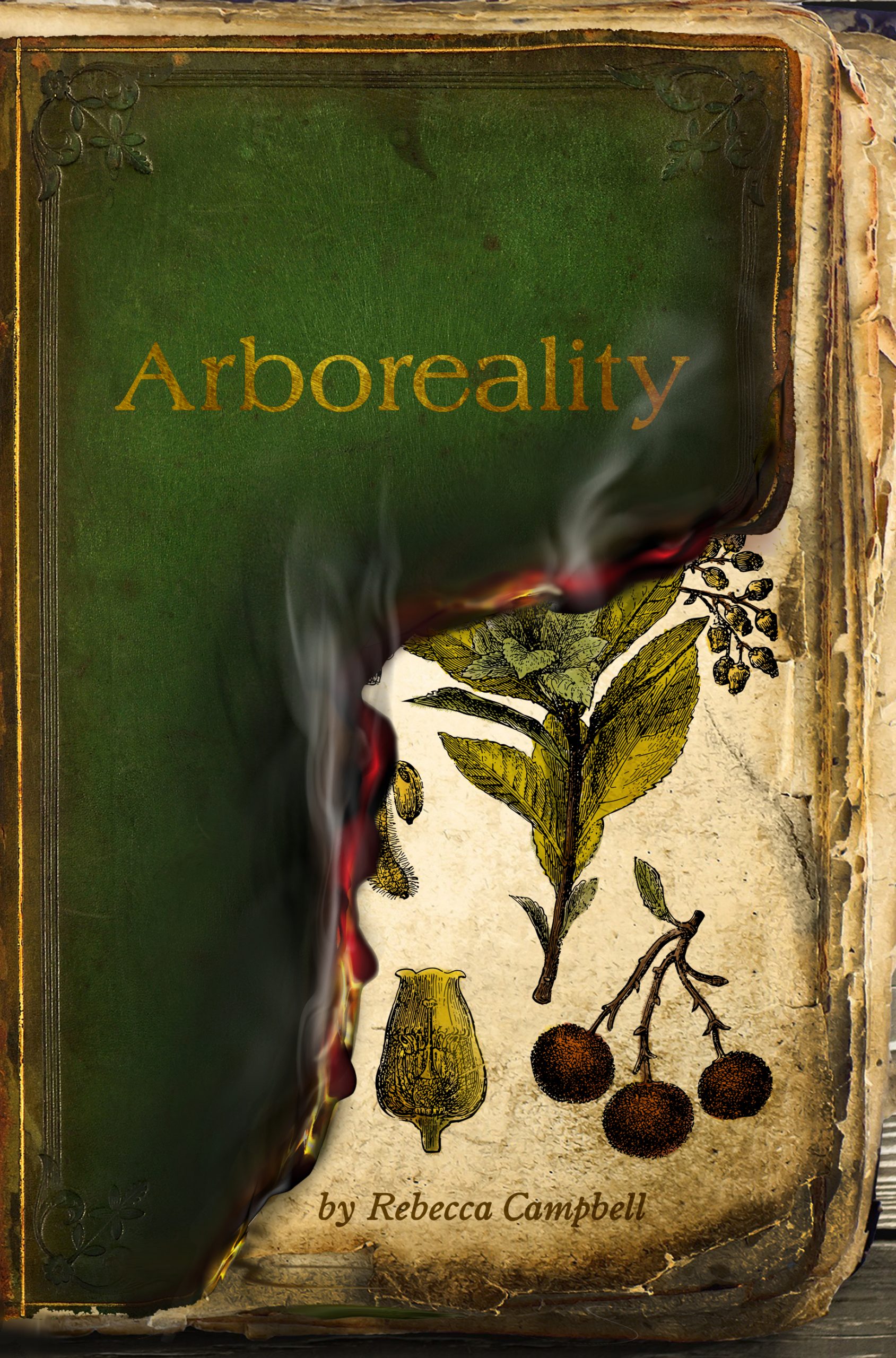
Lovis Geier, ecologist and eco-fiction writer, recommends:
- Three Ways to Disappear by Katy Yocom
- Limbo: A Novel about Jamaica by Esther Figueroa
“Both books are conservation-focused and communicate a love of nature and the sometimes uphill battle that conservationists are fighting on the ground. Both books made me want to get up and do something!”
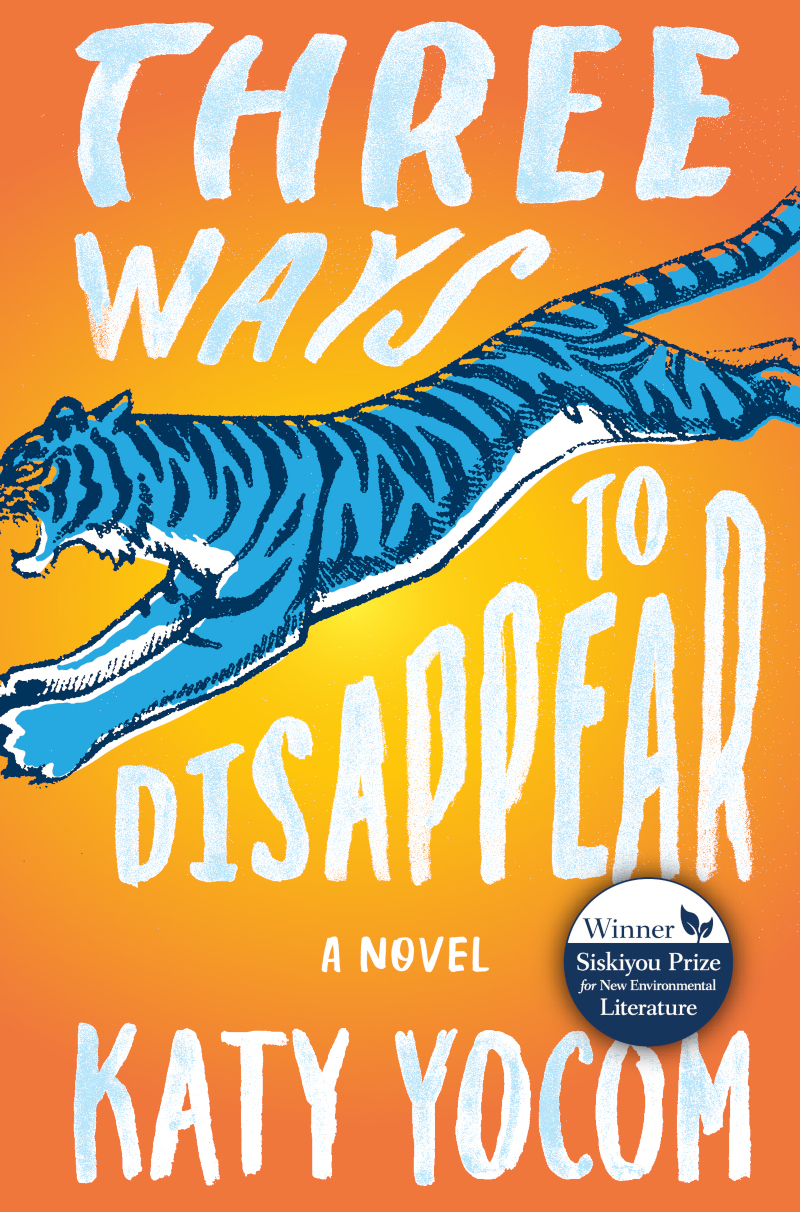
Rachel A. Rosen lives and makes trouble in Tkaronto (Toronto) in the country currently known as Canada. A genre strumpet with an outlook darker than VantaBlack, she straddles urban fantasy, cosmic horror, dystopian futures, and eco-fiction. Her stone-cold bummer of a first novel, Cascade (The Sleep of Reason Book 1), is a climate fantasy and political thriller. With Zilla Novikov, she’s the co-author of The Sad Bastard Cookbook: Food You Can Make So You Don’t Die. Rachel recommends three novels:
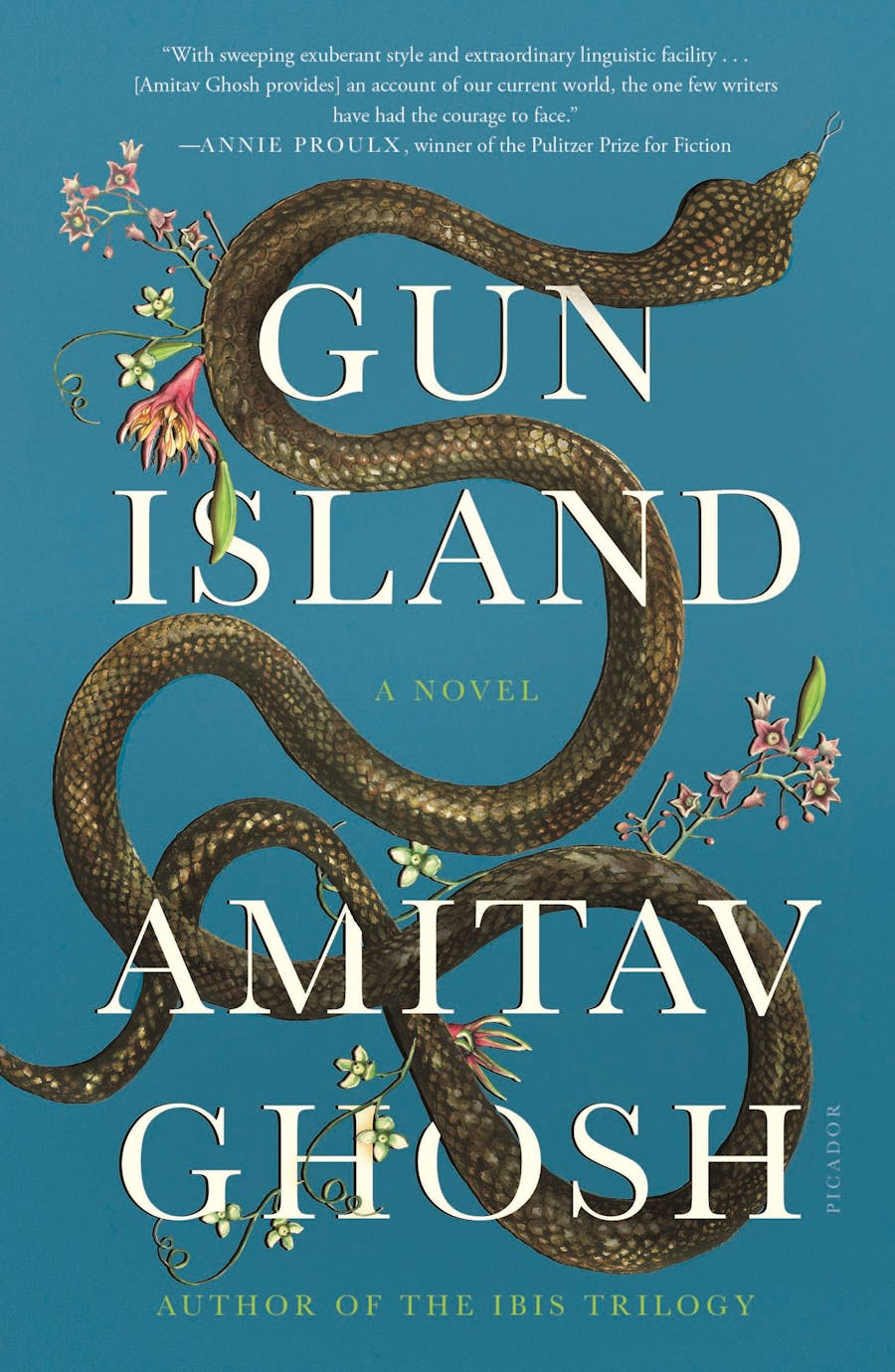
- 3 Body Problem (Netflix series). She talks more about 3 Body Problem and its links to Rachel Carson’s Silent Spring in her March 24 newsletter: In nature, nothing exists alone. “I think that [Liu] Cixin and other authors concerned about humanity know that planetary survival for all species is key. We do not survive alone. This is a wonderful science fiction tale; nowadays we know enough about sci-fi that it isn’t always about where we’re headed but where we already are and have been.”
- Africa Risen (anthology) edited by Sheree Renée Thomas, Oghenechovwe Donald Ekpeki, and Zelda Knight. You can also read her interview with the editors of Africa Risen. “The book’s introduction states: ‘As the origin of humanity and home to the world’s oldest civilizations, Africa is the origin story of storytelling.’ For anyone into reading stories set around the world, this is such a powerful statement and propelled me to read more.”
Mary’s other top reads include:
- Christiane Vadnais’s Fauna.
- Pola Oloixarac’s Dark Constellations. In Mary’s interview with the author, Pola said, “Dark constellations were the way the Incas named and organized their astronomic exploration of the night sky. In the southern hemisphere, unlike the North, the dark spaces between the stars are much wider: interestingly, the Incas built their characters and stories as written inside the dark spaces, and not around the lights dots of the stars like the Western tradition.”
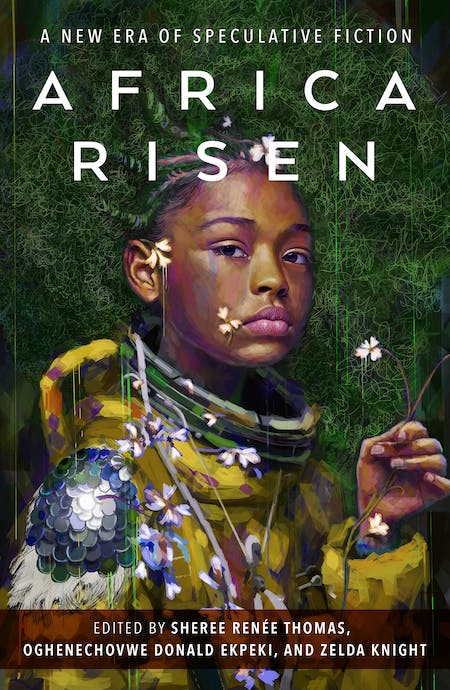
Environmental Reading Challenge
Our Storygraph environmental reading challenge parallels discussions on the Rewilding Our Stories’ book club channels. This section highlights some of the environmental fiction and creative nonfiction books we’ve read or have slated to read through the first part of 2024. Quotes are anonymous in this section. Our categories are shown in the bingo card.

January
- Never Whistle at Night: An indigenous dark fiction anthology edited by Shane Hawk and Theodore C. Van Alst Jr. “The anthology foreword, by Stephen Graham Jones, is strong and effective. So far, my favorite story is Tiff Morris’s ‘Night in the Crysalis’.”
- The Hidden Life of Trees: What They Feel, How They Communicate. Peter Wohlleben with Mike Grady (narrator), Jane Billinghurst (translator). “It is a German non-fiction book about trees by a German forester. It was a huge bestseller in Germany when it came out a few years ago…I guess that one reason why this book was so popular is because it is written in such a way that is easy to understand and to identify with for the general public. I still find it really informative, and I quite like his writing style.”
- The Living Mountain. A non-fiction memoir by Nan Shepherd. “…There is more than one way to climb a mountain. Some people race to the top to get the view and tick the box and others wander around, take notice of the colours and smells and sounds and wildlife and water etc. I read it while staying at a cottage in the Cairngorms so it was lovely to then go out in the forest and remind myself to do that, to take a moment and let it all in through my senses.”
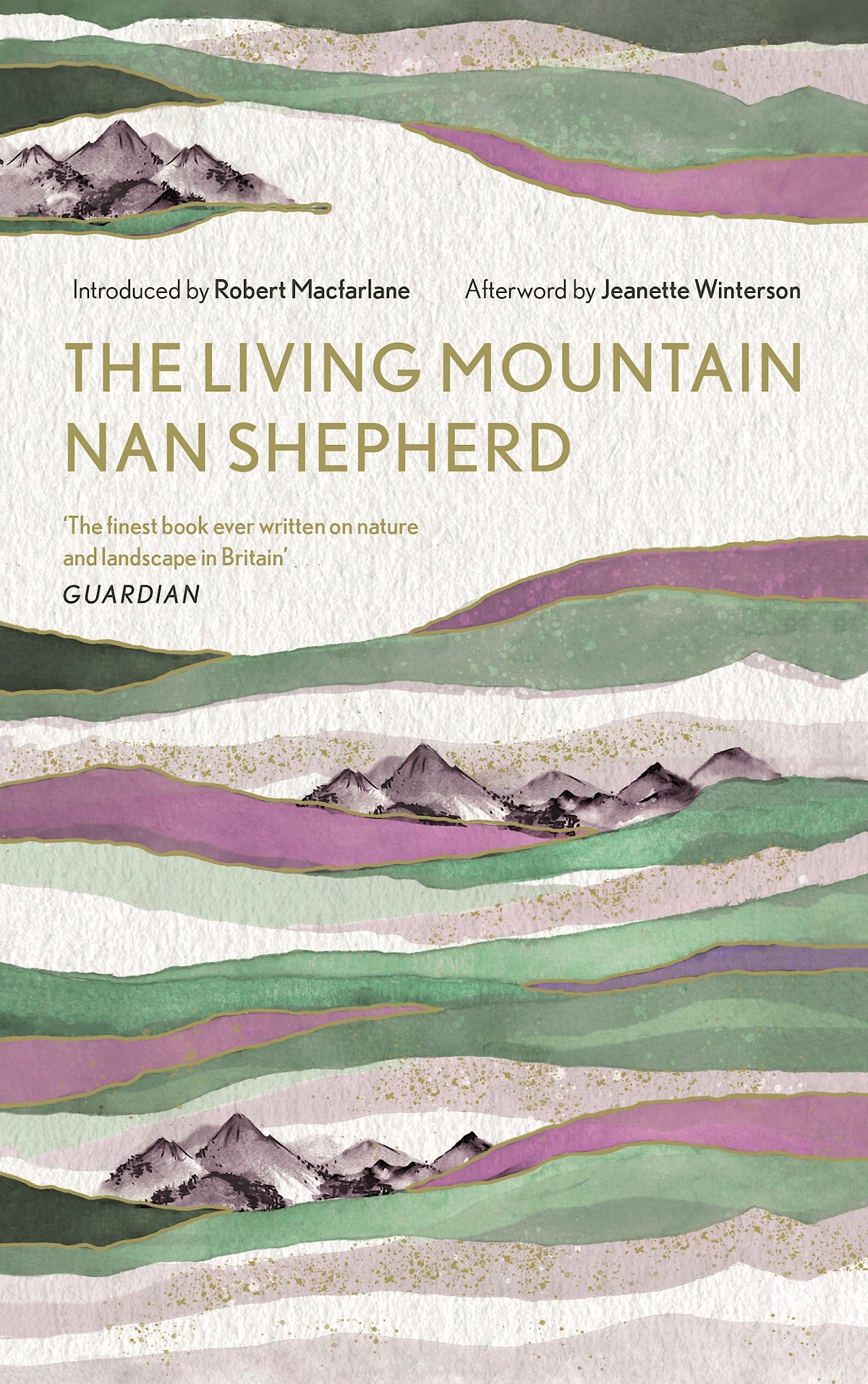
- A Half-Built Garden. A novel by Ruthanna Emrys. “An interesting addition to the solarpunk/hopepunk genre…Believe me, stories like this are necessary. The world desperately needs visions that are better than ‘Everything caught fire so we ate each other’. A Half-Built Garden makes an attempt at that better vision.”
- The Dispossessed by Ursula K. Le Guin. [We actually read this book as a group in 2022.] “As a reader, the two different time streams hooked me in a way that I don’t think the heavy philosophical themes would have otherwise. As a writer, I’m blown away by the shape of the story and how the two time streams foreshadow, mirror, and complicate each other. I’m still thinking through the environmental themes and the world-building implications on the two world’s vastly different environments.”
- Crossings: How Road Ecology Is Shaping the Future of Our Planet by Ben Goldfarb. “I’ve been eagerly awaiting this book for months. I started getting curious about road ecology this summer, when my ecology class took a field trip to a barrier island state park that is neatly bisected longways by a road.”
- Beautiful Trouble: A toolbox for the revolution edited by Andrew Boyd and David Oswald Mitchell. “I read the German translation Beautiful Trouble: Handbuch für eine unwiderstehliche Revolution…It is a good starting point for ideas on collective action.”
- The Politics of Muslim Cultural Reform Jadidism in Central Asia by Adeeb Khalid. Note that the member who read this book provided a detailed overview of the chapters, which was helpful. “Russia conquered and colonized Central Asia in the late 19th century. This left a mark on the region, among others a reform movement among Muslim intellectuals of the conquered realms: The Jadids…I will read this as my non-fiction entry related to colonialism.”
February
- On Time and Water by Andri Snær Magnason. “Apparently, it’s a non-fiction about our changing climate, but a very personal one. I am interested to read from the perspective of an Icelandic author—the only country in Europe where real glaciers still exist and are slowly melting.”
- Noor by Nnedi Okorafor. “Set in Nigeria by a Nigerian-American author. So far has cyberpunk vibes, but also Africa… and discrimination… and the desert… and environmental stuff. We’ll see where it goes.”
- Land of Milk and Honey by C Pam Zhang. “I would classify this book as ‘literary fiction with speculative elements’—which is to say that it is written in a lyrical, elevated prose style and does a lot of nuanced exploration of character and theme, but it also takes place in a speculative future world that is not only impacted by climate change but also by cloud seeding mishap that blocked the sun. “
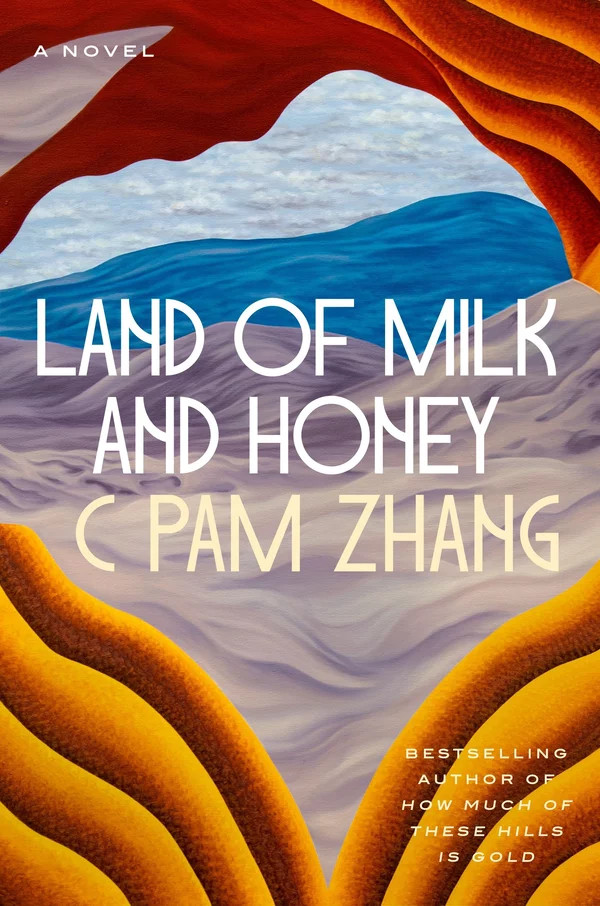
- The Botanist by WR Woodbury. “I love this book for its landscapes and inclusion of many species, both animal and plants. The premise of this guy beginning to transform into a plant-like human is really interesting.”
- Arboreality by Rebecca Campbell. “I really liked this book. It got across the multi-generational, de-growth actions needed to recover from climate change. It focused on a community of people and plants over time (from initial social collapse to initial recovery) and how their unexpected ecological and social entanglements built a livable future. It was both devastating and poetically hopeful, with some great uses of symbolic imagery to carry threads of hope throughout the narrative (violins, golden trees, etc.).”
- Hidden Systems by Dan Nott. “The book explicitly makes connections to climate change, which is really useful, and it both explains systems and explains why and how he chooses to explain systems in the way that he does—and I love when nonfiction books make their process visible. It is a bit US-focused but does look at utilities at global, regional, and local scales—and illustration is particularly well suited to capturing the relationships between those different scales.
- The Good-Hearted Gardeners by Suniti Namjoshi. “A lot of the author’s work is aimed toward children, but this one is about two neighbors who fall in love and join the best named club in the world: The Good-Hearted Gardeners, a Society for Well-Meaning Efforts for the Betterment of Language and the Salvation of the Planet. The novella is short, full of humor, and spiced with poetry.”
March
- The Fifth Season by NK Jemisin (Broken Earth series): “I am super impressed by the world Jemisin built. She uses science fiction and fantasy to reflect upon our humanity while at the same time on an entirely different type of world. It’s a solid story. Reads like a classic and epic, and is so well imagined.”
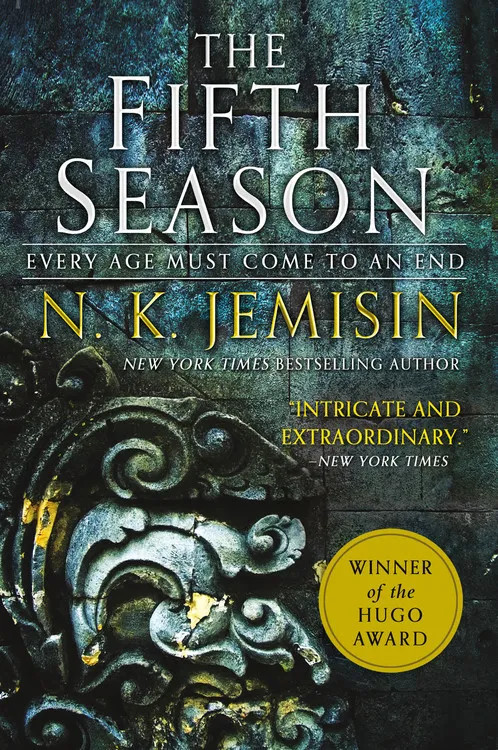
The Fifth Season, courtesy Hachette Book Group - A Half-Built Garden. A novel by Ruthanna Emrys [yes, two members read this book for our challenge!]. “As a watershed steward, I cannot express how excited I was to read about the watershed networks in this future world—it makes so much sense for communities to organize themselves around the waterways that connect them!”
- North Woods by Daniel Mason. “I think it offers an intriguing example of telling a story from the point of view of the land, and in any case it was a really fun read.”
- Climate injustice by Friederike Otto. “I am reading this German non-fiction about climate justice for March.”
- Pericles by William Shakespeare. “After recently seeing Billy Boyd and Dominic Monaghan in the play Guildenstern and Rosencrantz Are Dead, it got me in the mood for reading some Shakespeare. I searched for Shakespeare and environmentalism, and while you couldn’t call any of his books/plays eco-fiction, The Conversation has a cool article about this book. I’ve never read Pericles, but how it relates to sea ecology is interesting. Plus it fits the reading challenge category ‘published before the 20th century'”.
- Birnam Wood by Eleanor Catton. “I was surprised to find radical activists front and center, but now that I think of it other literary fiction like the Overstory did that too.”
April
- Staying with the Trouble by Donna J. Haraway. “Someone knowing I’m aligned with solarpunk recommended this nonfiction book to me.” [TBR]
- Ecotopia by Ernest Callenbach. “Since we’re talking about love in the monthly question thread, it made me wonder why or how these two things were connected for the author—what’s the connection between a sustainable future and sexual/emotional freedom? Or, conversely, is there something about extractive capitalism that lends itself to rigid sexual rules and lack of feeling? Because it seems like those things go together in our world too.”
- James by Percival Everett. “I’m not sure how to categorize this book yet. I don’t think it’s environmental fiction. I want to see out if the river is a major part of this story and how much it shapes the story.”
- The Greatest Polar Expedition of all Time by Markus Rex (translated). “My April read is this (chunky) non-fictional account of the MOSAiC expedition to the North Pole in 2019/2020. For the first time, scientists studied the Arctic during winter months.”
- I Want a Better Catastrophe by Andrew Boyd. “I do think of myself as a climate realist, but I admit that I generally fall much more on the optimistic and hopeful side of the realism spectrum. Boyd looks at the same data and feels far more hopeless and cynical than I do.”
May [so far]
The Three-Body Problem by Cixin Liu. “I’m reading this after watching the Netflix series, which I thoroughly enjoyed. The Netflix series nodded to Rachel Carson’s Silent Spring, including the resiliency of some bugs to survive, well, everything so far. “
